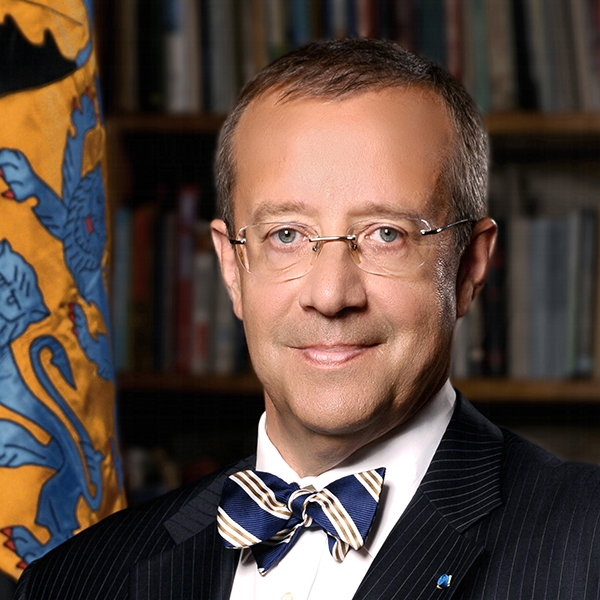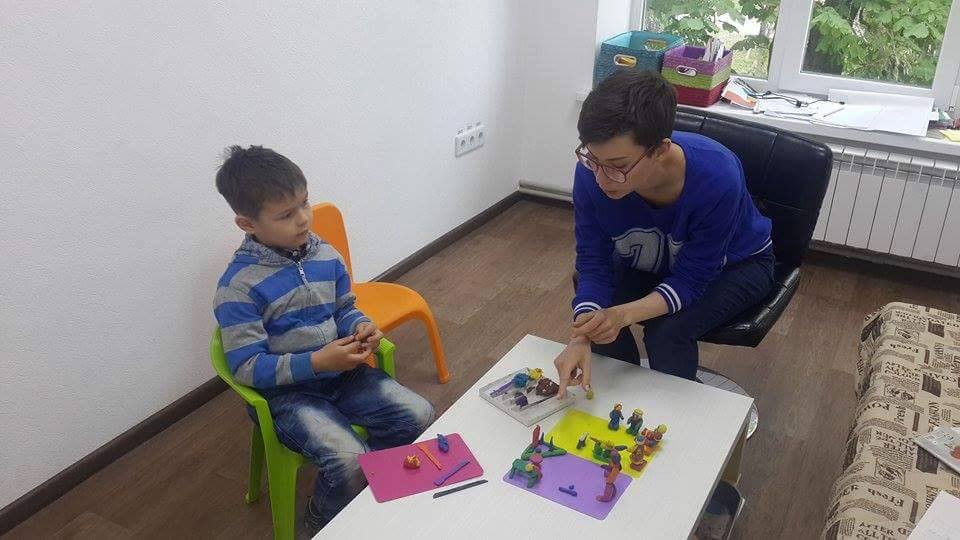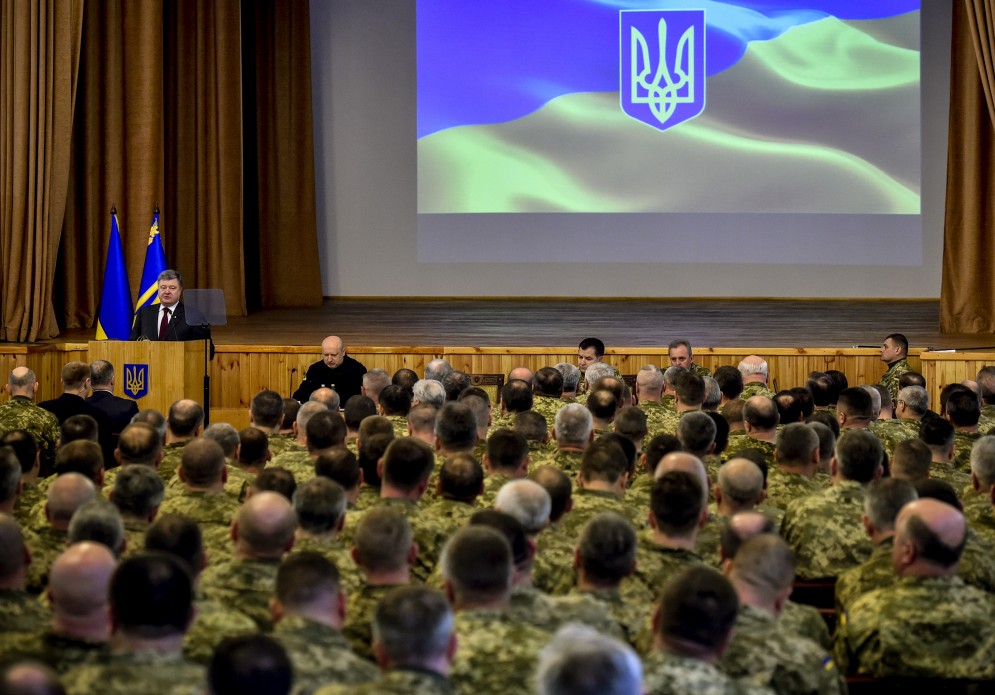
Recently, the president of Belarus Aliaksandr Lukashenka called the Russian-Belarussian military training exercise "West-2017" which is planned for September "an important step in ensuring national security" of his country. At the same time, a number of analysts, including Estonian Defense Minister Margus Tsakhkna, expressed their concern
about this upcoming military training. We spoke to the former Estonian President Toomas Hendrik Ilves about the extent of the Russian threat to the Baltic States, about whether Moscow would dare an open intervention or serious provocation of its western neighbors, and about the reach of Russian influence in the region.
The former head of Estonia admits: many Russian-speaking citizens of his country prefer to watch central Russian television channels that are freely broadcast on the Estonian territory.
"I have to admit that their programs are done very professionally, at Hollywood level standards. As a result, people not living in, let's say, Narva, who have not seen the state of the Russian province with their own eyes, tend to believe in the glamorous image of Russia created by television," notes Toomas Ilves.
According to him, propaganda content also appears in Estonian on some local TV channels, but attempts to influence the Estonian-speaking audience haven't met with great success, and anti-NATO sentiments are traditionally strong only among the Russian-speaking audience.
As for energy independence from Moscow, according to Toomas Ilves, the situation in Estonia is better than in neighboring Lithuania.
"Only 12% of the energy we consume comes from Russia. At present, the construction of the Balticconnector gas pipeline between Estonia and Finland is underway, which will finally ensure the country's independence from the gas monopoly of Gazprom. Also, Estonia has its own, independent sources of energy," the former president said.
A year ago, the European Commission allocated 187.5 million euros for the construction of Balticconnector. It is estimated that the pipeline will be operational by December 2019. Among the main goals of the gas pipeline construction, according to the representatives of the Eurocommission, are ensuring stable energy supplies, as well as diversification of routes and sources of energy, leading to reduced dependence of EU countries on Russia.
At the same time, according to Toomas Ilves, other Baltic countries are also actively trying to diversify energy sources. For example, a couple of years ago, construction of terminals for liquefied natural gas (LNG) was completed in Butinge and Klaipeda, which, in the opinion
of the Lithuanian political scientist Liudas Zdanavichius, could theoretically satisfy all of Baltic countries' energy needs.
The former president of Estonia notes that his country has exceeded the NATO defense spending requirements of 2% of GDP for the past several years. According to him, Russian maneuvers near the borders of the Baltic states are perceived by their residents as something almost routine, and do not cause any particular alarm. However, from time to time, Russian security forces go beyond the military exercises – as was the case with the kidnapping of Estonian Security Police officer (KaPo) Eston Kohver in 2014. The Russians accused him of espionage, although Toomas Ilves insists that the abducted Estonian had nothing to do with intelligence.
"He was investigating the organized crime activities, in particular, the increased incidence of cigarette smuggling on the Russian-Estonian border," the former president explained.
On September 26, 2015, Kohver was exchanged for Alexei Dressen – a former officer of the security police department of the Ministry of Internal Affairs of Estonia, who in 2012 was found guilty of passing secret information to the Russian FSB and sentenced to 16 years in prison.
"Russian spies are still quite active in Estonia today. There are three main areas that they're interested in. First of all, it’s the military sphere, and not only the defense secrets of Estonia, but also of NATO as a whole, including the NATO military bases located on our territory. The second category is the Estonian special services, and the third is their work among the Russian diaspora and attempts to turn it against Estonia. In the third case, it is quite difficult to distinguish between cultural events in the Russian-speaking community and the gathering of intelligence, since they often happen simultaneously," explains Toomas Ilves.
"We continue to detain and expel them from our country. It's amusing that we have detained more Russian spies than other countries in Europe even though Estonia is a very small country," the former president adds.
The most successful example of Russian espionage in the military intelligence sector, according to Ilves, is the case of Herman Simm, a former high-ranking Estonian civil servant convicted of state treason. In the 1990s, Simm first worked as the general director of the Estonian Police Department and then as the head of the analytical bureau of the defense policy department and the department for protection of state secrets of the Ministry of Defense. In 2008, Simm was arrested, and in 2009 sentenced to twelve and a half years in prison.
"It was he who was responsible for the theft of NATO secrets," explained Ilves. – About a month ago we again had to expel two Russian diplomats – Russian Consul General in Narva Dmitry Kasennov and his assistant, consul-adviser Andrei Surgayev – for the massive spread of anti-Estonian sentiments. I do not presume to state exactly whether they were engaged in espionage - it is sometimes very difficult to separate these two processes. "
According to Ilvis, Russian media often spreads disinformation about Estonia. For example, last year on the eve of Victory Day, Russian television showed a film about "Estonian neo-Nazis", made along the same lines as their films about the mythical "Ukrainian fascists."
"The problem was that at some point the West took the fake news about" Estonian fascism "rather seriously. Many times we had to defend ourselves before foreign diplomats and explain the essence of Russian lies. The situation changed after the Russian fake story about the "girl Liza who was raped" in Germany in January 2016. Then the Western politicians saw for themselves what a Russian "information" was worth," said Ilves.
As for the threat of a direct military intervention by Russia, the former president of Estonia considers it unlikely at the moment.
"Since 2017, individual NATO battalions have been stationed in Estonia, as well as in other Baltic countries and Poland. In addition, the US and other countries regularly conduct their military training exercises there. As far as Russian provocations and attempts to destabilize the situation from within the country, I do not think that Moscow will be able to use the Russian-speaking diaspora in Estonia as they used it, for example, in the Donbas. The fact is that, besides propaganda, it is also important to take into account the material factor. The incomes of Estonian residents may be ten times the incomes of the inhabitants of the east of Ukraine. In addition, Estonia is part of the EU, and therefore all its citizens, including Russian speakers, can travel across Europe without visas and earn money there. Moreover, the minimum pension of any grandmother in Estonia exceeds the average salary in Russia, and therefore people simply do not see the point in joining Moscow," concludes the former president.




